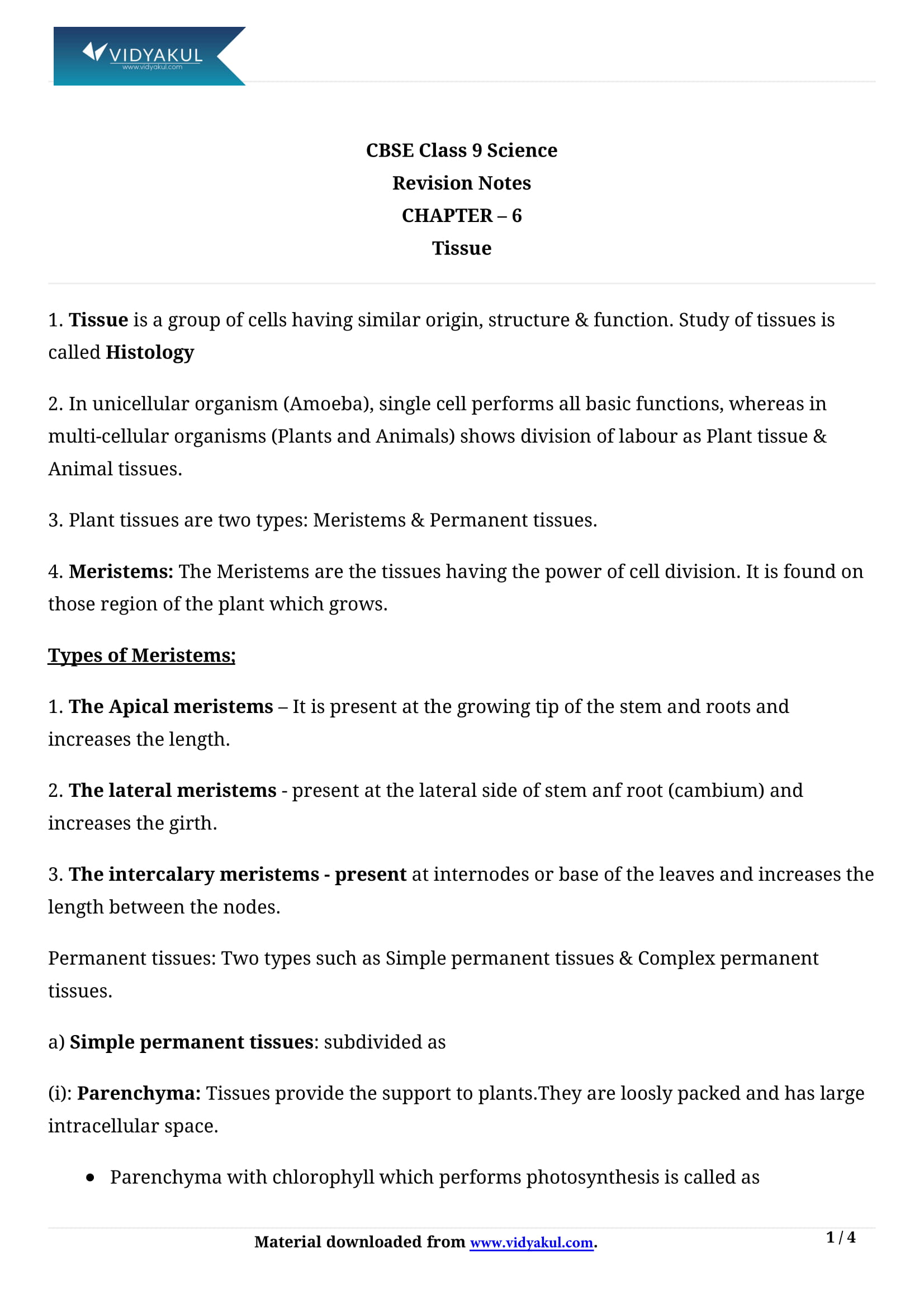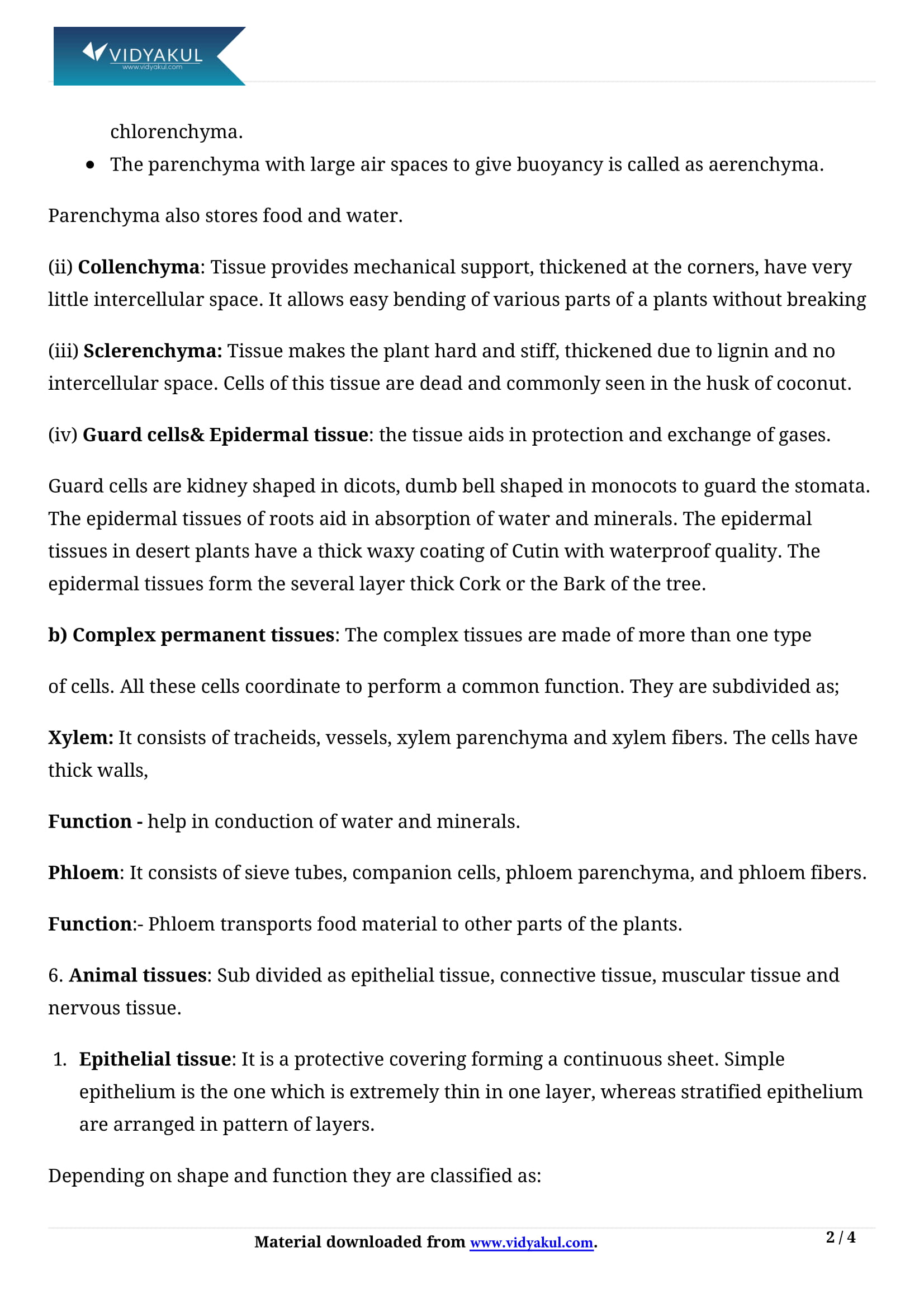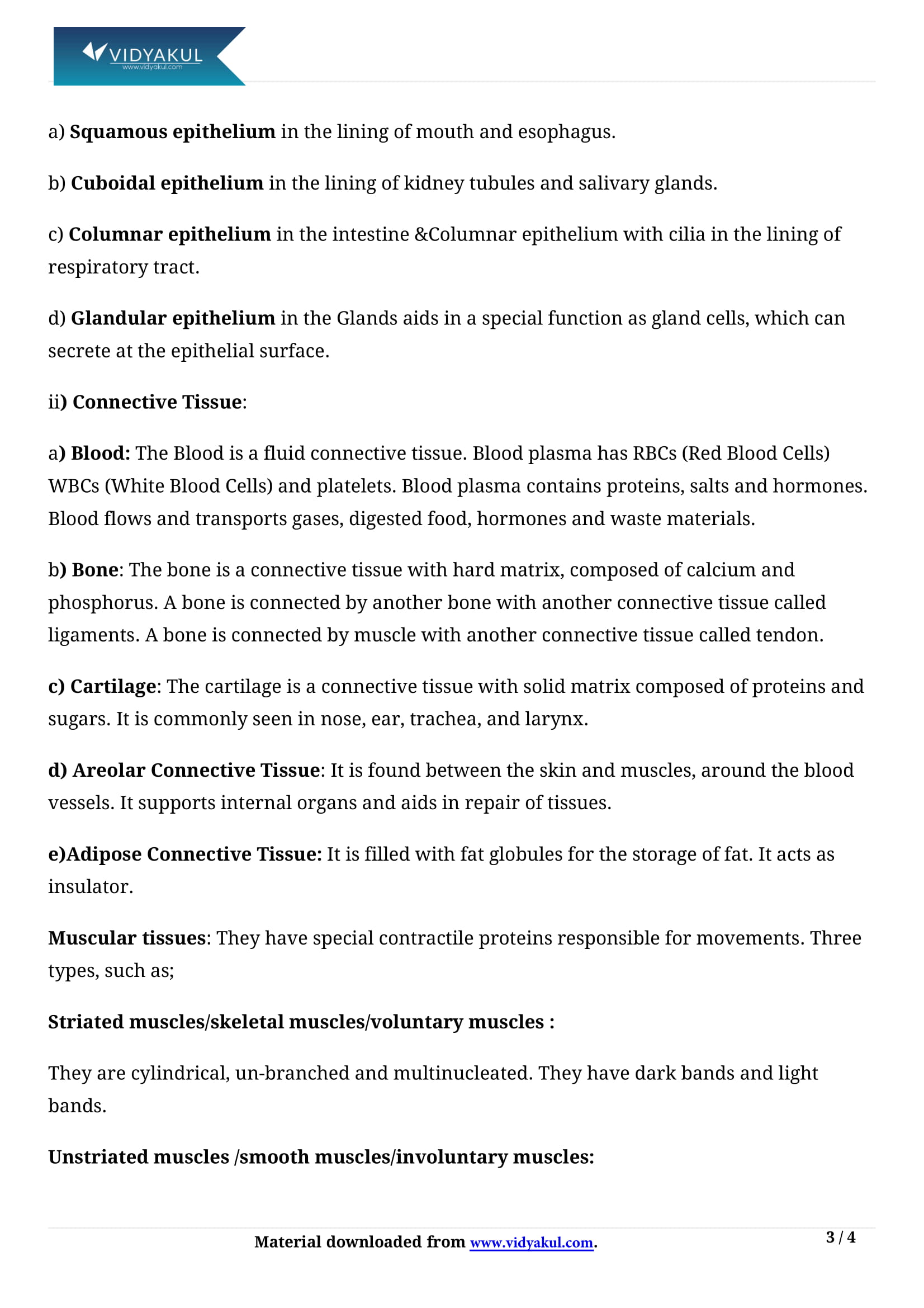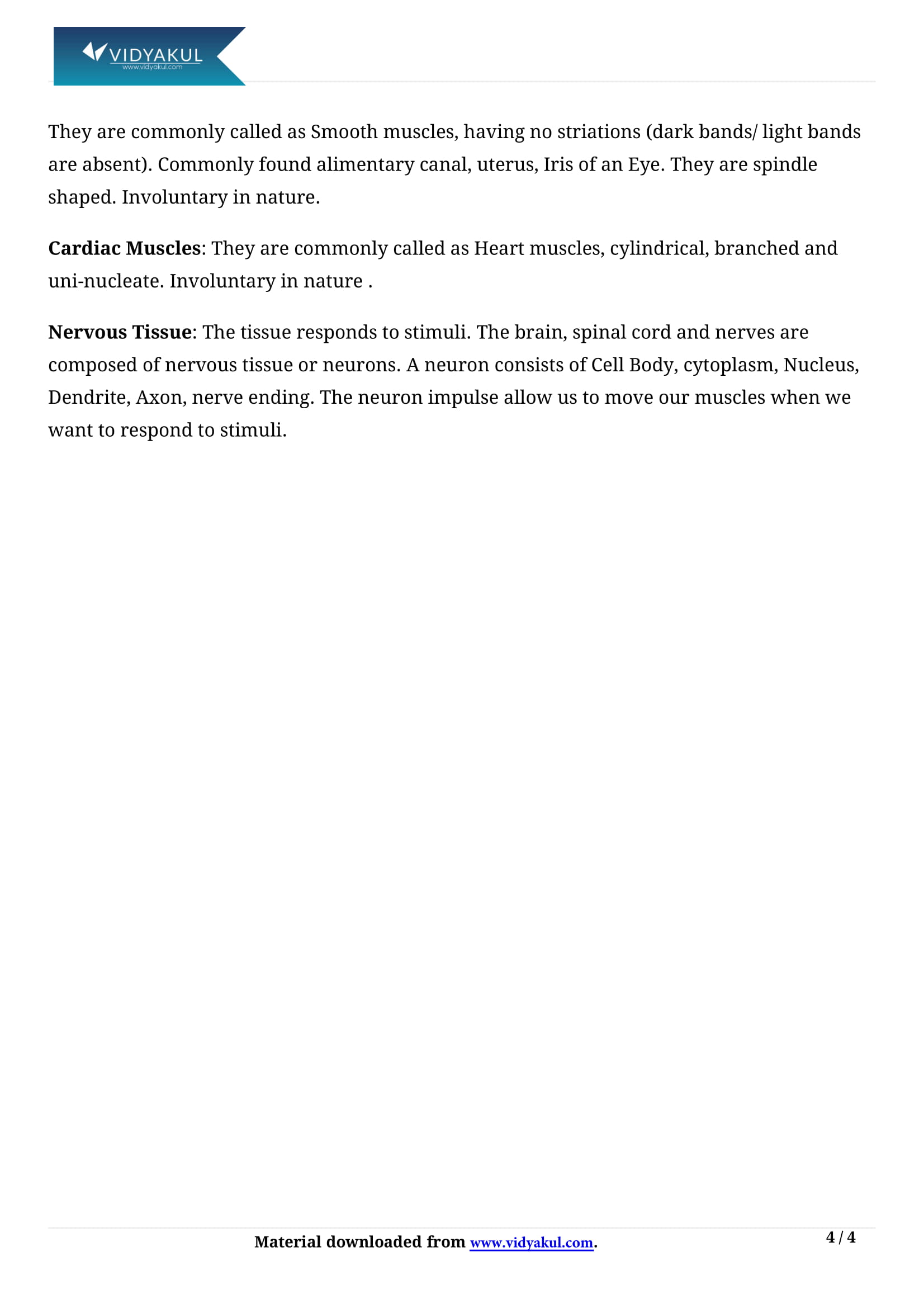Tissues Class 9 Notes
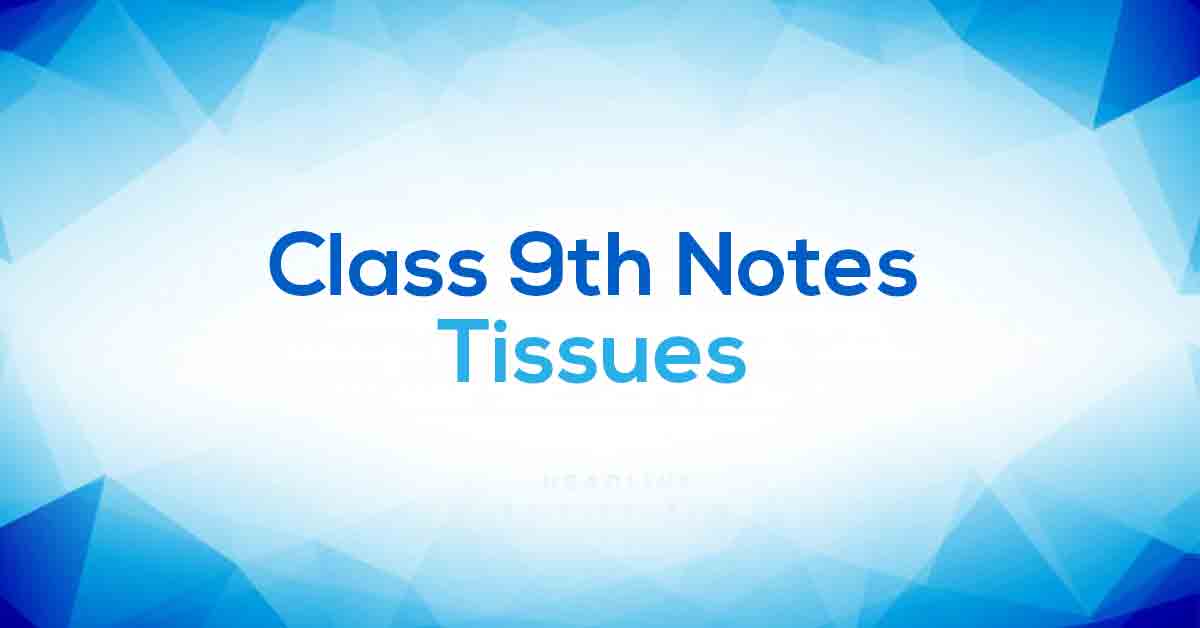
Chapter 6 Tissues
Solving the problems in this chapter will give students a good understanding of tissue types, plant and animal tissues, and more. NCERT notes for Grade 9, Chapter 6 will help students practice the text questions given at the end. CBSE Grade 9 Science Chapter 6 Tissues include meristem, permanent tissue, epithelial tissue, connective tissue, muscle tissue and nervous tissue.
Vidyakul provides over 450 exercises covering all the subtopics covered in Chapter 6. Students should focus on practicing all text questions provided by Vidyakul. This article contains the most sophisticated and reliable information. Scroll down to learn more about NCERT notes for Class 9, Chapter 6.
CBSE CLASS 9th CH-6
Points to Remember
Students can check the important points to be remembered from NCERT Class 9 Science chapter 6 to score good marks in the exams.
Plant tissues are of two main types. They are meristematic and permanent tissues.
Meristematic tissues are dividing tissues present in the growing regions of the plant.
Apical meristem plays a vital role in the primary growth of plants. It increases the length of the plant, while lateral meristem increases the diameter or thickness of the plant. It plays a vital role during secondary growth in dicot plants.
Permanent tissues are derived from meristem tissues when they lose the ability to divide. They are classified as simple and complex tissues.
Parenchyma, collenchyma and sclerenchyma are three types of simple tissues. Xylem and phloem are types of complex tissues.
The outermost and protective layer of the plant cell is called the epidermis.
The small pores present in the epidermis of the leaf are called stomata.
The guard cells, subsidiary cells and stomatal pores constitute the stomatal apparatus.
Stomata regulate the exchange of gases and transpiration.
The xylem is a water-conducting tissue. It is composed of the trachea (vessel), tracheids, xylem parenchyma and xylem sclerenchyma.
Phloem is a complex food conducting tissue. It is made of sieve tubes, companion cells, phloem parenchyma, and phloem sclerenchyma.
Topics and Sub-topics
"Tissues" is one of the most exciting chapters in 9th grade "Science". Students will be able to explore different types of questions related to plant and animal tissues. The more questions students try to solve, the more knowledge they gain. Gradually, students master the subject matter and learn how to answer the questions asked on the exam.
In addition to helping students prepare for the whiteboard exam, NCERT notes for Class 9 Science Chapter 6 will help students complete their homework on time. It will also help students better understand the concepts. Vidyakul provides step-by-step notes to help students achieve good grades.
Below mentioned is the list of topics included in CBSE Class 9 Science chapter 6.
Few Important Questions
What are the main types of tissues?
1. Connective tissue 2. Epithelial tissue 3. Muscle tissue 4. Nervous tissue
What are the benefits of tissue in the human body?
Tissues have several functions in our human body. They are responsible for carrying oxygen, blood and other necessary materials to various organs.
How to score high grades in this chapter?
Practise diagrams and keep revising till before the exam. Remember important points and mention those in the exam.
Plant tissues are of two main types. They are meristematic and permanent tissues.
Meristematic tissues are dividing tissues present in the growing regions of the plant.
Apical meristem plays a vital role in the primary growth of plants. It increases the length of the plant, while lateral meristem increases the diameter or thickness of the plant. It plays a vital role during secondary growth in dicot plants.
Permanent tissues are derived from meristem tissues when they lose the ability to divide. They are classified as simple and complex tissues.
Parenchyma, collenchyma and sclerenchyma are three types of simple tissues. Xylem and phloem are types of complex tissues.
The outermost and protective layer of the plant cell is called the epidermis.
The small pores present in the epidermis of the leaf are called stomata.
The guard cells, subsidiary cells and stomatal pores constitute the stomatal apparatus.
Stomata regulate the exchange of gases and transpiration.
The xylem is a water-conducting tissue. It is composed of the trachea (vessel), tracheids, xylem parenchyma and xylem sclerenchyma.
Phloem is a complex food conducting tissue. It is made of sieve tubes, companion cells, phloem parenchyma, and phloem sclerenchyma.
What are the main types of tissues?
What are the benefits of tissue in the human body?
How to score high grades in this chapter?
Learn about various tissues in Tissues Class 9 Notes pdf.
Download this solution for FREE Download this PDF
Download Vidyakul App for more Important videos, PDF's and Free video lectures.
